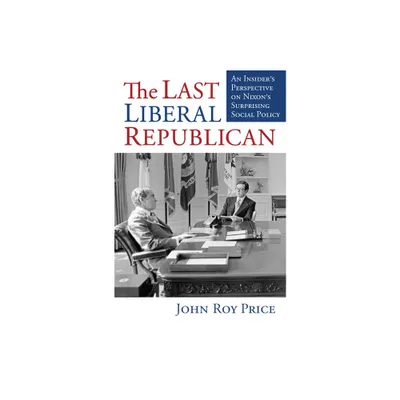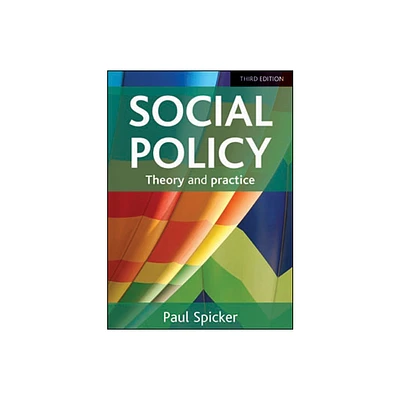Home
The Last Liberal Republican: An Insider's Perspective on Nixon's Surprising Social Policy
Loading Inventory...
Barnes and Noble
The Last Liberal Republican: An Insider's Perspective on Nixon's Surprising Social Policy
Current price: $24.99


Barnes and Noble
The Last Liberal Republican: An Insider's Perspective on Nixon's Surprising Social Policy
Current price: $24.99
Loading Inventory...
Size: Audiobook
*Product Information may vary - to confirm product availability, pricing, and additional information please contact Barnes and Noble
The Last Liberal Republican
is a memoir from one of Nixon’s senior domestic policy advisors. John Roy Price—a member of the moderate wing of the Republican Party, a cofounder of the Ripon Society, and an employee on Nelson Rockefeller’s campaigns—joined Daniel Patrick Moynihan, and later John D. Ehrlichman, in the Nixon White House to develop domestic policies, especially on welfare, hunger, and health. Based on those policies, and the internal White House struggles around them, Price places Nixon firmly in the liberal Republican tradition of President Theodore Roosevelt, New York governor Thomas E. Dewey, and President Dwight Eisenhower.
Price makes a valuable contribution to our evolving scholarship and understanding of the Nixon presidency. Nixon himself lamented that he would be remembered only for Watergate and China.
provides firsthand insight into key moments regarding Nixon’s political and policy challenges in the domestic social policy arena. Price offers rich detail on the extent to which Nixon and his staff straddled a precarious balance between a Democratic-controlled Congress and an increasingly powerful conservative tide in Republican politics.
provides a blow-by-blow inside view of how Nixon surprised the Democrats and shocked conservatives with his ambitious proposal for a guaranteed family income. Beyond Nixon’s surprising embrace of what we today call universal basic income, the thirty-seventh president reordered and vastly expanded the patchy food stamp program he inherited and built nutrition education and children’s food services into schools. Richard Nixon even almost achieved a national health insurance program: fifty years ago, with a private sector framework as part of his generous benefits insurance coverage for all, Nixon included coverage of preexisting conditions, prescription drug coverage for all, and federal subsidies for those who could not afford the premiums.
will be a valuable resource for presidency scholars who are studying Nixon, his policies, the state of the Republican Party, and how the Nixon years relate to the rise of the modern conservative movement.
is a memoir from one of Nixon’s senior domestic policy advisors. John Roy Price—a member of the moderate wing of the Republican Party, a cofounder of the Ripon Society, and an employee on Nelson Rockefeller’s campaigns—joined Daniel Patrick Moynihan, and later John D. Ehrlichman, in the Nixon White House to develop domestic policies, especially on welfare, hunger, and health. Based on those policies, and the internal White House struggles around them, Price places Nixon firmly in the liberal Republican tradition of President Theodore Roosevelt, New York governor Thomas E. Dewey, and President Dwight Eisenhower.
Price makes a valuable contribution to our evolving scholarship and understanding of the Nixon presidency. Nixon himself lamented that he would be remembered only for Watergate and China.
provides firsthand insight into key moments regarding Nixon’s political and policy challenges in the domestic social policy arena. Price offers rich detail on the extent to which Nixon and his staff straddled a precarious balance between a Democratic-controlled Congress and an increasingly powerful conservative tide in Republican politics.
provides a blow-by-blow inside view of how Nixon surprised the Democrats and shocked conservatives with his ambitious proposal for a guaranteed family income. Beyond Nixon’s surprising embrace of what we today call universal basic income, the thirty-seventh president reordered and vastly expanded the patchy food stamp program he inherited and built nutrition education and children’s food services into schools. Richard Nixon even almost achieved a national health insurance program: fifty years ago, with a private sector framework as part of his generous benefits insurance coverage for all, Nixon included coverage of preexisting conditions, prescription drug coverage for all, and federal subsidies for those who could not afford the premiums.
will be a valuable resource for presidency scholars who are studying Nixon, his policies, the state of the Republican Party, and how the Nixon years relate to the rise of the modern conservative movement.

















